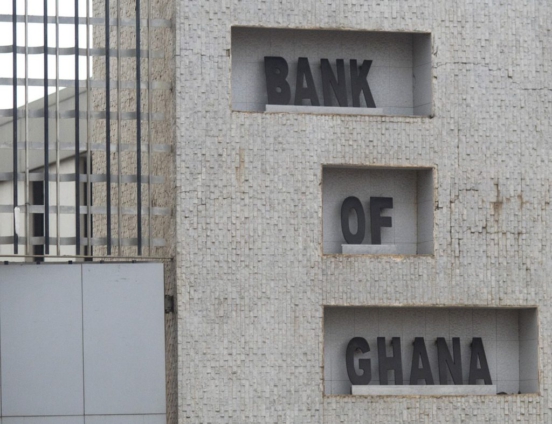August 14, 2017, was a restful day for Akua, a 36-year-old single mother, who had been working in the banking industry for 10 years until the news broke.
“I was on leave actually so I was home listening to the morning news and I heard the announcement on radio,” she recounted.
The announcement triggered a series of events which changed her reality and that of her six-year-old daughter, permanently.
“We went to the office in the morning and we were handed over our letters. So I went to the Uber office, you know because I’m a woman, I’m unable to do the peak hours. What I get from doing Uber is daily upkeep. But when it comes to major maintenance on even the car it’s a challenge and even the rent,” she said.
Akua is one of the over 5,000 workers in seven banks who lost their jobs as a result of the financial sector cleanup.
Eventually, over four hundred financial institutions closed their doors over the next three years, leaving many lives and livelihoods in peril.
Another face behind these numbers is Jemima Mensah, who recently started a catering business.
“And it’s still not easy because this money in this shop is not for spending, so you don’t get any money from it to solve your problems. So things are still hard, but since we have days then it means there is still hope to do something. So now the washing I’ve stopped. I’ve graduated from washing to catering,” she said.
Though Akua and Jemima do not agree with the actions taken by the Bank of Ghana, Consultant Nana Otuo Acheampong explains Dr Addison and his team took the best possible course of action.
“Allowing them to stay on was one option, but not the preferred option. Because sometimes a system would be so broken that the only alternative is to get rid of it and start afresh,” he intimated.
He is however disappointed that little progress has been made in recovering the lost funds from the shareholders of these institutions.
“Some 27billion of assets have been identified by the receiver. We’ve been told that so far1.7billion has been recovered. The auditors again are turning round to tell us that the assets were overvalued in the books of the banks. Who audited those accounts? It was these same auditors that audited.”
Seven persons are currently standing trial for the alleged mismanagement which caused the collapse of the institutions including former Bank of Ghana Governor, Dr Kwabena Duffuor, former Deputy Governor, Dr Johnson Asiamah and Dr Kofi Amoabeng among others.
It is not clear how much progress has been made in these cases, but there is no doubt that the impact of their alleged actions still leaves a bitter taste in the mouths of thousands like Jemima and Akua.
Latest Stories
-
Energy sector woes can’t be fixed through new taxes – Duncan Amoah
16 minutes -
GH¢1 fuel levy necessary to address legacy energy debt and under-recovery – Dr Kwabena Donkor
19 minutes -
Volta region remains unshaken NDC bastion – GIMPA-KAS study
28 minutes -
Goosie Tanoh urges NDC to uphold probity and accountability to sustain leadership for the next 50 years
43 minutes -
Dr Kwabena Donkor backs GH¢1 fuel levy, but says it shouldn’t be in isolation
60 minutes -
IEAG calls on President Mahama to terminate SML contract
1 hour -
‘It feels amazing’ – Saminu on setting new 100m national record
1 hour -
Gov’t taking GH¢2 fuel levy, not GH¢1 as claimed – Energy Analyst Kwadwo Poku alleges
1 hour -
Minority marches in protests over undeclared Ablekuma North election result
1 hour -
OPD services halted at Korle Bu as nurses and midwives strike enters day 3
2 hours -
FIFA Club World Cup: Team base camps and training sites for tournament unveiled
2 hours -
Police probe killing of man in Agbozume over alleged phone theft
2 hours -
46th June 4 Commemoration: Let’s not repeat NPP’s mistakes, let’s reset with purpose – Goosie Tanoh to NDC
2 hours -
OSP drops all corruption, bribery charges against Thomas Owusu Andy
2 hours -
Ashanti region remains NPP stronghold, youthful shifts may hint in future – GIMPA-KAS study
2 hours

